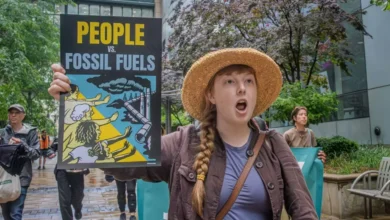Climate change might affect the taste and cost of coffee

According to Bloomberg, coffee lovers may face a bitter reality in the future as climate change threatens major coffee-growing regions. The report highlights that rising temperatures and increasingly volatile weather patterns will not only make coffee more bitter but also more expensive.
The agency’s report emphasizes that agricultural crops, including coffee, are at risk of decline due to the impact of a changing climate. It suggests that hardier crops, such as Robusta coffee, may be able to withstand the harsh conditions better. However, even Robusta coffee producers, particularly in Vietnam, are sounding the alarm as they face challenges.

Tran Thi Lien, a Vietnamese farmer who owns a one-hectare coffee farm, highlights the difficulty of growing coffee in such conditions. Some years experience water scarcity, requiring farmers to dig deep for water, while other years are characterized by heavy rainfall. These challenging circumstances have led many Vietnamese farmers to switch to cultivating black pepper and durian instead of coffee, questioning the value of coffee as a cash crop.
The impact is not limited to Vietnam. A 2022 study revealed that tropical cash crops like Arabica coffee, avocados, and cashews face risks from climate change. Furthermore, suitable land for coffee cultivation is steadily decreasing globally. As a result, producers may increasingly replace Arabica coffee with Robusta, leading to a different taste experience for coffee consumers.
Companies like Nestlé, a significant consumer of Robusta coffee, are already feeling the effects. Nestlé spends $700 million annually to purchase a quarter of Vietnam’s coffee production, catering to consumer demand.

Philippe Navratil, Global President of the Strategic Business Unit for Coffee at Nestlé, warns that without climate change solutions, half of the land used for coffee cultivation will no longer be viable in 50 years.
To address these challenges, Nestlé pledged to invest over $1.2 billion by 2030 to encourage farmers supplying the Nescafé brand with coffee to adopt sustainable farming methods. One solution includes replacing current trees with more resilient varieties that can withstand climate change.
In a recent report, it was predicted that Robusta coffee production will decline by approximately 35 million sacks by 2040 due to increasing consumption and the consequences of climate change. This is a significant loss as the world currently produces around 80 million sacks of coffee annually.










